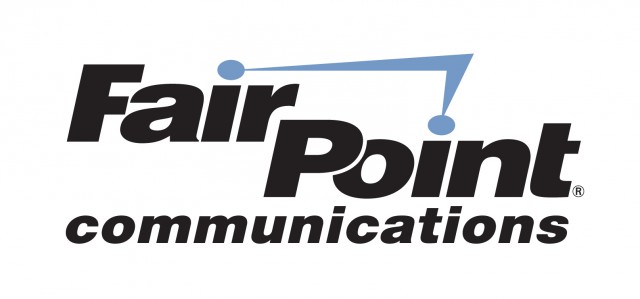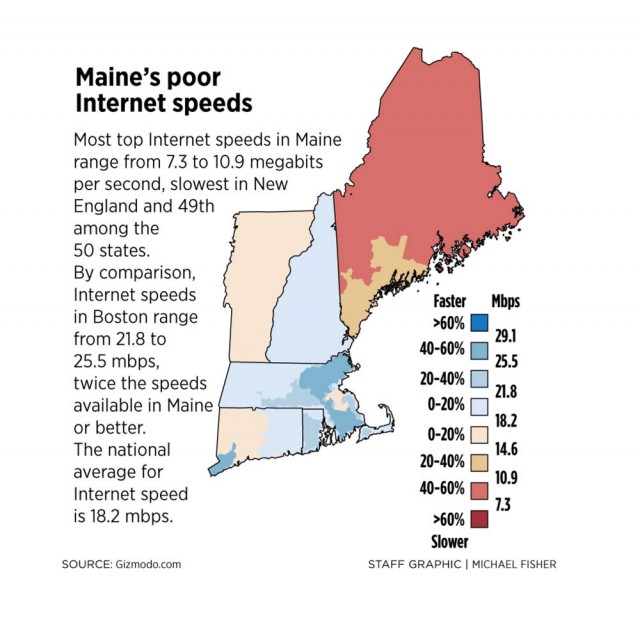 Frontier Communications, just hours after passing its first hurdle — from the Federal Trade Commission — to go ahead with its proposed $10.54 billion acquisition of Verizon’s wireline assets in California, Florida and Texas, is already being discussed as the most likely buyer of FairPoint Communications, which serves former Verizon customers in the northern New England states of Vermont, New Hampshire and Maine.
Frontier Communications, just hours after passing its first hurdle — from the Federal Trade Commission — to go ahead with its proposed $10.54 billion acquisition of Verizon’s wireline assets in California, Florida and Texas, is already being discussed as the most likely buyer of FairPoint Communications, which serves former Verizon customers in the northern New England states of Vermont, New Hampshire and Maine.
Wall Street is turning up the pressure on FairPoint to sell its money-losing operation to a larger company that could use economy of scale to rescue a business that has already declared bankruptcy once and lost over $136 million last year. FairPoint also recently settled an ongoing dispute with its unionized workforce which makes the company a more likely takeover target.
FairPoint CEO Paul Sunu put out the for-sale sign during last week’s first quarter earnings conference call, admitting to investors FairPoint is considering mergers and acquisitions as a seller or buyer as part of the company’s overall strategy.
Barry Sine, a telecom analyst with Drexel Hamilton, said the company’s 18,000 mile fiber optic network across the three states it serves is the crown jewel of FairPoint and would be a valuable addition to a larger phone company’s portfolio. FairPoint continues to rapidly lose residential customers as they switch to cellular phones, cable company phone service, or broadband-powered Voice over IP services like Ooma. But FairPoint is picking up customers in the commercial sector, including wireless carriers seeking cell tower backhaul connections, hospitals, and other institutions using FairPoint’s fiber network.
Frontier, headquartered in Stamford, Conn., already has substantial assets in the northeast, including AT&T’s former service area in Connecticut. Picking up northern New England would not be much of a challenge for a company already serving 28 states with more than 17,000 employees and could soon pick up millions of new customers in the south.
Vermont Public Radio reports troubled FairPoint Communications, which serves customers in northern New England originally serviced by Verizon, is likely up for sale and could be acquired by a company like Frontier Communications by 2017. (2:54)
You must remain on this page to hear the clip, or you can download the clip and listen later.
 With Frontier’s attention currently occupied by its latest Verizon transaction, analysts do not expect to see a deal with FairPoint struck before 2017. That could allow Frontier’s rivals — CenturyLink and Windstream to approach FairPoint first. But neither of those two companies have recently been active acquiring new landline service areas.
With Frontier’s attention currently occupied by its latest Verizon transaction, analysts do not expect to see a deal with FairPoint struck before 2017. That could allow Frontier’s rivals — CenturyLink and Windstream to approach FairPoint first. But neither of those two companies have recently been active acquiring new landline service areas.
Many of FairPoint’s largest shareholders purchased defaulted bonds when FairPoint went bankrupt, and hope to rack up a substantial return when FairPoint is sold to a larger company.
Frontier has a better record of working well with unionized workers than FairPoint, so it was no surprise the unions representing FairPoint workers are not upset with the news the company could be sold.
A spokesman for the International Brotherhood of Electrical Workers in Vermont told Vermont Public Radio the union is aware of speculation about a future sale of the company and would welcome the opportunity to be a partner with “a more successful business” than FairPoint.


 Subscribe
Subscribe Just weeks after FairPoint Communications and union workers settled a prolonged strike involving more than 1,700 workers that began last October,
Just weeks after FairPoint Communications and union workers settled a prolonged strike involving more than 1,700 workers that began last October,  FairPoint’s unionized workers returning to the job
FairPoint’s unionized workers returning to the job  Union leaders sense the company is already quietly getting the books in order for a sale.
Union leaders sense the company is already quietly getting the books in order for a sale.


